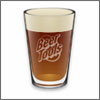flyangler18
Well-Known Member
- Recipe Type
- All Grain
- Yeast
- 1728
- Yeast Starter
- 1L for 3338
- Batch Size (Gallons)
- 5
- Original Gravity
- 1.040
- Final Gravity
- 1.014
- Boiling Time (Minutes)
- 90
- IBU
- 17
- Color
- 16 SRM
- Primary Fermentation (# of Days & Temp)
- 14 days @ 60°
- Tasting Notes
- Malt forward.
[size=+2]Duncan's Malcontent 70/- [/size]
[size=+1]9-B Scottish Heavy 70/-[/size]
Author: Jason Konopinski
Date: 2/12/09

Size: 5.5 gal
Efficiency: 80%
Attenuation: 65%
Calories: 134.54 kcal per 12.0 fl oz
Original Gravity: 1.040 (1.035 - 1.040)
|=======================#========|
Terminal Gravity: 1.014 (1.010 - 1.015)
|====================#===========|
Color: 16.22 (9.0 - 17.0)
|======================#=========|
Alcohol: 3.4% (3.2% - 3.9%)
|============#===================|
Bitterness: 17.0 (10.0 - 25.0)
|===============#================|
[size=+1]Ingredients:[/size]
6.5 lb Maris Otter Pale Ale Malt
.5 lb Munich Malt
0.5 lb British Dark Crystal
3 oz Caramel Malt 120L
2.0 oz Pale Chocolate
1 oz Goldings (5.0%) - added during boil, boiled 60 min
1.0 ea WYeast 1728 Scottish Ale
[size=+1]Schedule:[/size]
00:03:00 Mash-In - Liquor: 2.44 gal; Strike: 167.66 °F; Target: 154 °F
01:03:00 Saccharification Rest - Rest: 60 min; Final: 152.0 °F
01:03:00 Lautering - First Runnings: 0.0 gal sparge @ 150 °F, 0.0 min; Sparge #1: 3.08 gal sparge @ 178 °F, 0.0 min; Sparge #2: 3.08 gal sparge @ 178 °F, 0.0 min; Total Runoff: 7.87 gal
[size=-1]Results generated by BeerTools Pro 1.5.2[/size]
[size=+1]9-B Scottish Heavy 70/-[/size]
Author: Jason Konopinski
Date: 2/12/09

Size: 5.5 gal
Efficiency: 80%
Attenuation: 65%
Calories: 134.54 kcal per 12.0 fl oz
Original Gravity: 1.040 (1.035 - 1.040)
|=======================#========|
Terminal Gravity: 1.014 (1.010 - 1.015)
|====================#===========|
Color: 16.22 (9.0 - 17.0)
|======================#=========|
Alcohol: 3.4% (3.2% - 3.9%)
|============#===================|
Bitterness: 17.0 (10.0 - 25.0)
|===============#================|
[size=+1]Ingredients:[/size]
6.5 lb Maris Otter Pale Ale Malt
.5 lb Munich Malt
0.5 lb British Dark Crystal
3 oz Caramel Malt 120L
2.0 oz Pale Chocolate
1 oz Goldings (5.0%) - added during boil, boiled 60 min
1.0 ea WYeast 1728 Scottish Ale
[size=+1]Schedule:[/size]
00:03:00 Mash-In - Liquor: 2.44 gal; Strike: 167.66 °F; Target: 154 °F
01:03:00 Saccharification Rest - Rest: 60 min; Final: 152.0 °F
01:03:00 Lautering - First Runnings: 0.0 gal sparge @ 150 °F, 0.0 min; Sparge #1: 3.08 gal sparge @ 178 °F, 0.0 min; Sparge #2: 3.08 gal sparge @ 178 °F, 0.0 min; Total Runoff: 7.87 gal
[size=-1]Results generated by BeerTools Pro 1.5.2[/size]





















































![Craft A Brew - Safale S-04 Dry Yeast - Fermentis - English Ale Dry Yeast - For English and American Ales and Hard Apple Ciders - Ingredients for Home Brewing - Beer Making Supplies - [1 Pack]](https://m.media-amazon.com/images/I/41fVGNh6JfL._SL500_.jpg)




